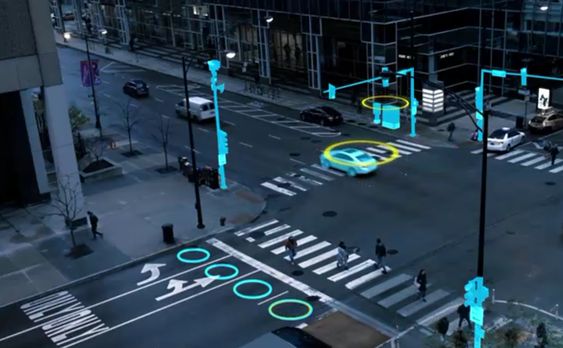Smart cities are fast changing urban settings that use technology and data to improve productivity, sustainability, and the standard of living for citizens. This paper gives a succinct summary of how smart cities have developed, emphasizing the major trends and advancements that are reshaping the urban environment.

The first is digital infrastructure
Strong digital infrastructure, such as high-speed internet, Internet of Things sensors, and data analytical tools that gather and analyze information from diverse sources, define smart cities.
- Internet of Things and Data Connectivity
With sensors and devices integrated in urban infrastructure in order to track and regulate everything from highway movement and trash management to energy usage, the Internet of Things, also known as IoT, is a crucial component. - Transportation & Mobility:
With advancements like electric and driverless cars, bike-sharing services programs, real-time control of traffic, and smart parking solutions, smart cities are rethinking mobility.
Sustainable urban planning includes:
Green construction, the use of renewable energy, and waste management initiatives all help to lessen the environmental effect. Sustainability is a fundamental concept.
- Governance and Security: To improve public safety and security, smart cities use cutting-edge monitoring, predictive policing, and crisis management technologies.
- Citizen Engagement: Digital tools and mobile applications make it possible for people to interact with their local governments, report problems, use services, and take part in decision-making.
Initiatives in healthcare and public safety are as follows:
Healthcare services are given priority in smart cities, and wellness and access to healthcare are improved via a telemedicine monitoring of health, and data-driven health promotion programs.
Educational attainment and digital literacy:
Initiatives to promote online learning and digital literacy are encouraging innovation and equipping locals for the economy of the internet.
- Disaster preparedness and resilience: cities that are smart invest in systems and infrastructure to increase their resilience to natural catastrophes, using data-driven early warning and disaster management systems.
- Development and Innovative: To draw talent and promote economic growth, smart cities support innovation centers, technological incubators, and entrepreneurial ecosystems.
The incorporation of information and technology, and sustainability concepts throughout urban planning and government is what is driving the creation of smart cities. Keeping up with these developments is crucial for city planners, lawmakers, and people who are influencing the development of urban life as intelligent cities continue to evolve.
